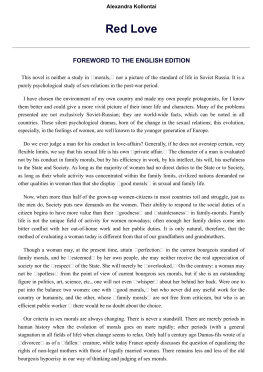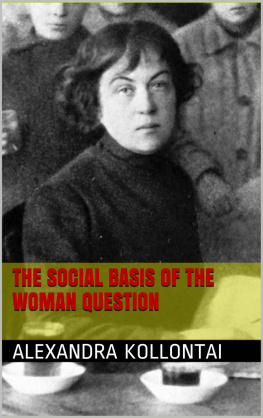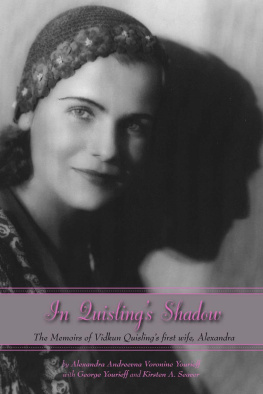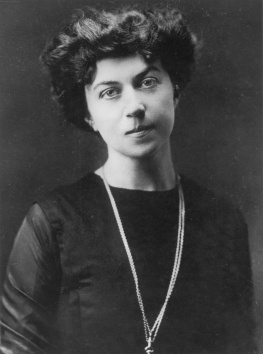Alexandra Kollontai - The Workers Opposition
Here you can read online Alexandra Kollontai - The Workers Opposition full text of the book (entire story) in english for free. Download pdf and epub, get meaning, cover and reviews about this ebook. genre: Politics. Description of the work, (preface) as well as reviews are available. Best literature library LitArk.com created for fans of good reading and offers a wide selection of genres:
Romance novel
Science fiction
Adventure
Detective
Science
History
Home and family
Prose
Art
Politics
Computer
Non-fiction
Religion
Business
Children
Humor
Choose a favorite category and find really read worthwhile books. Enjoy immersion in the world of imagination, feel the emotions of the characters or learn something new for yourself, make an fascinating discovery.

- Book:The Workers Opposition
- Author:
- Genre:
- Rating:4 / 5
- Favourites:Add to favourites
- Your mark:
- 80
- 1
- 2
- 3
- 4
- 5
The Workers Opposition: summary, description and annotation
We offer to read an annotation, description, summary or preface (depends on what the author of the book "The Workers Opposition" wrote himself). If you haven't found the necessary information about the book — write in the comments, we will try to find it.
The Workers Opposition — read online for free the complete book (whole text) full work
Below is the text of the book, divided by pages. System saving the place of the last page read, allows you to conveniently read the book "The Workers Opposition" online for free, without having to search again every time where you left off. Put a bookmark, and you can go to the page where you finished reading at any time.
Font size:
Interval:
Bookmark:


Contents:
Introduction
Individual or Collective Management?
The Trade Unions: Their Role & Problems
On Bureaucracy & Self-activity of The Masses
Appendix: Background on the Workers Opposition
Written: early 1921
First Published: Pravda, January 25, 1921. The text was banned in Soviet Russia in March of 1921, by resolution of the 10th Congress of the Communist Party.
Source: Solidarity (London) Pamphlet no.7, 1961; taken from the original English publication: Workers ' Dreadnought (by Sylvia Pankhurst), April 22 - August 19, 1921.
Translated: from the Russian
Transcription/Markup: Class Against Class / Brian Baggins
Copyleft: Kollantai Internet Archive (marxists.org) 2002. Permission is granted to copy and/or distribute this document under the terms of the GNU Free Documentation License.
Alexandra Kollantai Internet Archive
Before making clear what the cause is of the ever-widening break between the "Workers' Opposition"and the official point of view held by our directing centres, it is necessary to call attention to two facts:
(1) The Workers' Opposition sprang from the depths of the industrial proletariat of Soviet Russia. It is an outgrowth not only of the unbearable conditions of life and labour in which seven million industrial workers find themselves, but it is also a product of vacillation, inconsistencies, and outright deviations of our Soviet policy from the clearly expressed class-consistent principles of the Communist programme.
(2) The Opposition did not originate in some particular centre, was not a fruit of personal strife and controversy, but, on the contrary, covers the whole extent of Soviet Russia and meets with a resonant response. At present, there prevails an opinion that the whole root of the controversy arising between the Workers' Opposition and the numerous currents noticeable among the leaders consists exclusively in difference of opinions regarding the problems that confront the Trade Unions.
This, however, is not true. The break goes deeper. Representatives of the Opposition are not always able clearly to express and define it, but as soon as some vital question of the reconstruction of our Republic is touched upon, controversies arise concerning a whole areas of cardinal economic and political questions.
For the first time, the two different points of view (as expressed by the leaders of our party and the representatives of our class-organised workers), found their refection at the Ninth Congress of our Party when that body was discussing the question: collective versus personal management in industry
At that time, there was no opposition from any well-formed group, but it is very significant that collective management was favoured by all the representatives of the Trade Unions, while opposed to it were all the leaders of our Party, who are accustomed to appraise all events from the institutional angle. They require a good deal of shrewdness and skill to placate the socially heterogeneous and the sometimes politically hostile aspirations of the different social groups of the population as expressed by proletarians, petty owners, peasantry, and bourgeoisie in the person of specialists, and pseudo-specialists, of all kinds and degrees.
Why was it that only the Unions stubbornly defended the principle of collective management, even without being able to adduce scientific arguments in favour of it? And why was it that the specialists' supporters at the same time defended the "one man management''?: The reason is that in this controversy, though both sides emphatically denied that there was a question of principle involved, two historically irreconcilable points of view had clashed. The "one man management' is a product of the individualist conception of the bourgeois class. The "one man management' is in principle an unrestricted, isolated, free will of one man, disconnected from the collective. This idea finds its reflection in all spheres of human endeavour - beginning with the appointment of a sovereign for the State, and ending with a sovereign director of the factory. This is the supreme wisdom of bourgeois thought. The bourgeoisie do not believe in the power of a collective body. They like to whip the masses into an obedient flock, and drive them wherever their unrestricted will desires. The working class and its spokesmen, on the contrary, realise that the new Communist aspirations can be obtained only through the collective efforts of the workers themselves. The more the masses are developed in the expression of their collective will and common thought, the quicker and more complete will be the realization of working class aspirations, for it will create a new: homo-geneous, unified, perfectly-arranged Communist Industry. Only those who are directly bound to industry can introduce into it animating innovations.
Rejection of a principle - the principle of collective management in the control of industry - was a tactical compromise on behalf of our Party, an act of adaptation; it was, moreover, an act of deviation from that class policy which we so zealously cultivated and defended during that first phase of the revolution.
Why did this happen? How did it happen that our Party, matured and tempered in the struggle of the revolution, was permitted to be carried away from the direct road, in order to journey along the roundabout path of adaptation? formerly condemned overtly and branded as "opportunism"? The answer to this question we shall give later. Meanwhile we shall turn to the question: how did the Workers' Opposition form and develop?
The Ninth Congress of the Russian Communist Party was held in the spring of 1920. During the summer, the apportion did not assert itself . Nothing was heard about it during the stormy debates that took place at the Second Congress of the Communist International. But deep at the bottom, there was taking place an accumulation of experience, of critical thought. The first expression of this process, incomplete at the time, was at the Party Conference in September, 1920. For a time, the thought preoccupied itself largely with rejections and criticisms. The Opposition had no well-formulated proposals of its own. But it was obvious that the Party was entering into a new phase of its life. Within its ranks, "lower" elements demand freedom of criticism, loudly proclaiming that bureaucracy strangles them, leaves no freedom for activity or for manifestation of initiative.
The leaders of the Party understood this undercurrent, and Comrade Zinoviev made many verbal promises as to freedom of criticism, widening of the scope of self-activity for the masses, persecution of leaders deviating from the principles of democracy, etc. A great deal was said and well said; but from words to deeds there is a considerable distance. The September conference, together with Zinoviev's much-promising speech has changed nothing either in the Party itself or in the life of the masses. The root from which the Opposition sprouts, was not destroyed. Down at the bottom, a growth of particulate dissatisfaction, criticism and independence was taking place. This inarticulate ferment was noted even by the Party leaders and it quite unexpectedly generated sharp controversies. It is significant that in the central Party bodies, sharp controversies arose concerning the part that must be played by the Trade Unions. This, however, is only natural.
Font size:
Interval:
Bookmark:
Similar books «The Workers Opposition»
Look at similar books to The Workers Opposition. We have selected literature similar in name and meaning in the hope of providing readers with more options to find new, interesting, not yet read works.
Discussion, reviews of the book The Workers Opposition and just readers' own opinions. Leave your comments, write what you think about the work, its meaning or the main characters. Specify what exactly you liked and what you didn't like, and why you think so.











